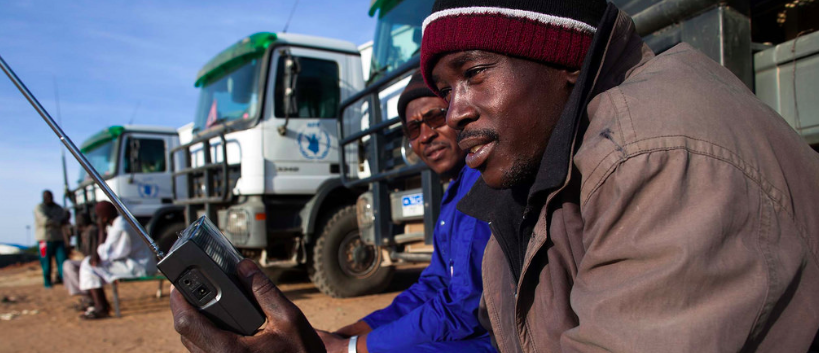Sudanese lawmakers on Monday discussed a report by the national Parliamentary Information and Media Committee, which stated that the majority of the people in Darfur and South Kordofan prefer Radio Dabanga to any state-run broadcaster.
The extraterritorial radio station broadcasts on shortwave frequencies in the morning and evening since 2008, and also on satellite television since 2013. The station has survived a number of government efforts to take it off-air, including attempts at jamming and prosecution of reporters.
“Radio Dabanga has become the main source for information and news in Sudan,” said Abdallah Jamaa, MP for Ed Daein constituency of East Darfur during the parliamentarian session on the media.
“What the citizens are witnessing on the ground, they hear reflected on Radio Dabanga. That is why Radio Dabanga is much more popular than any government-sponsored radio, which has been working for 25 years without any effect,” he said.
The MP said that the people in East Darfur prefer Radio Dabanga to state-run Radio Omdurman. In his remarks he even proposed cutting financial support of national radio stations. “Not even a penny,” he warned.
MP Abdallah Ali Masar, former media minister and current chairman of the transport committee, admitted that his wife listens to Radio Dabanga “day and night.”
“Every day, when I come home, I find her listening to Radio Dabanga,” he said, bemoaning that the station broadcasts programmes that he considers as anti-government.
Meanwhile, the Sudanese presidency on Monday delivered a strongly worded statement warning the media against crossing “red lines” in covering a number of sensitive issues.
The statement warned of what it called “the repeated negative approach by some of the media toward issues of national security, military affairs, and justice.”
Observers considered the statement a clear and candid message to the Sudanese press to refrain from covering the paramilitary Rapid Support Forces (RSF), which are commanded by the national security service.
File photo: A WFP truck driver listens to the radio after waking up in the morning at an Unamid base in North Darfur (Albert Gonzalez Farran/Unamid)




